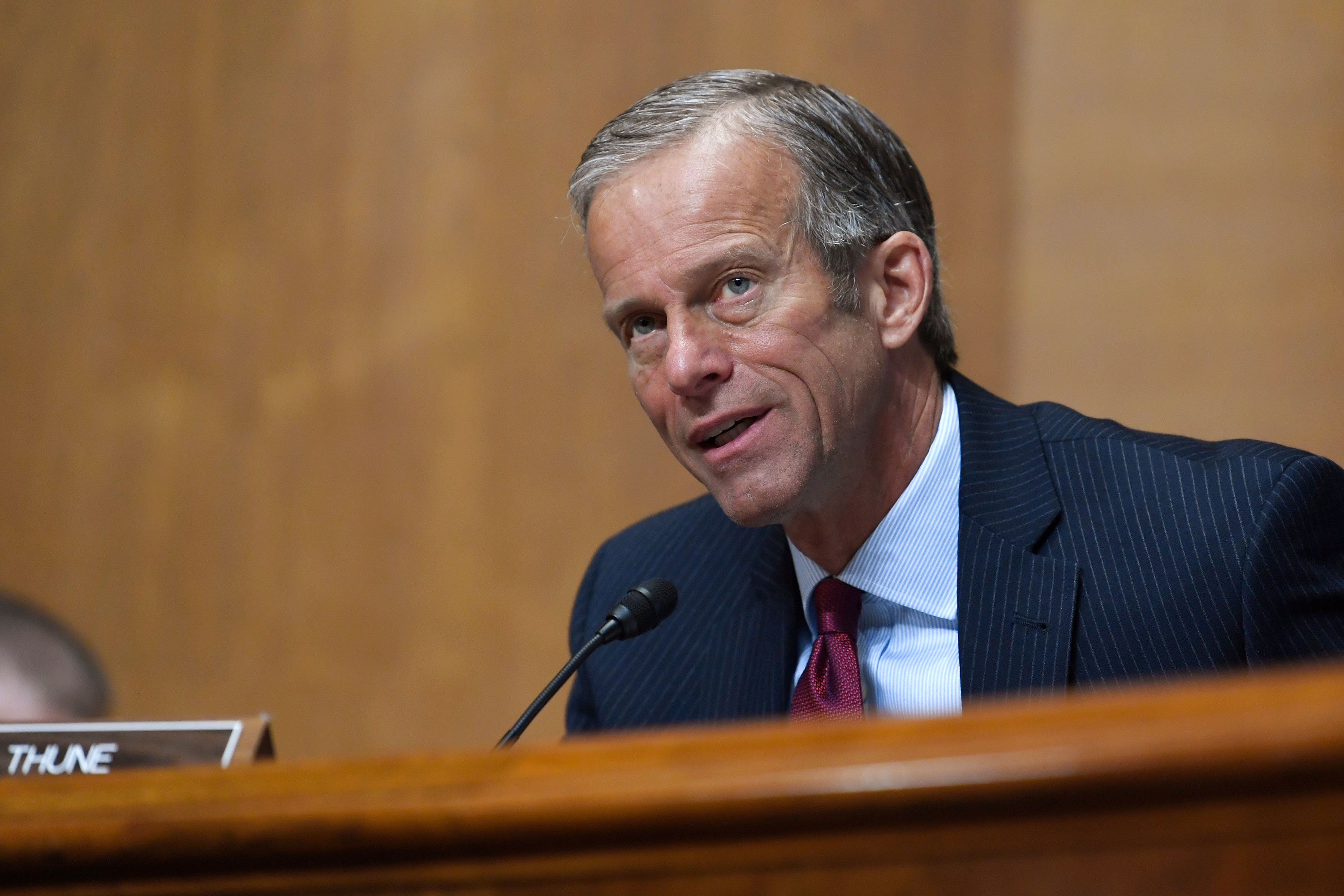
The Senate Republican Conference selected Thune as majority whip for the 116th Congress he succeeded Senator John Cornyn of Texas, who was term-limited in the position. He served as the Senate Republican Conference chair, the third-ranking position in the Senate, from 2012 to 2019. Senate, Thune served as the Republican chief deputy whip from 2007 to 2009 and as chair of the Senate Republican Policy Committee from 2009 to 2012. Thune is known for his defeat of sitting Senate Democratic Leader Tom Daschle in 2004. He was a three-term congressman, serving as the representative for South Dakota's at-large congressional district from 1997 to 2003. Thune has worked in politics and civic organizations since completing his MBA degree. A member of the Republican Party, he is in his third Senate term, and serves as Senate minority whip. Our expert panel also discuss Defence Minister Peter Dutton’s recent comment that “the only way you can preserve peace is to prepare for war”, the record number of female candidates this election (39%, up from 32% last time around), and large numbers of young people enrolling to vote at the last minute.īelow the Line is a twice-weekly election podcast hosted by award-winning broadcaster Jon Faine and brought to you by The Conversation and La Trobe University.ĭisclosure: Simon Jackman is an unpaid consultant on polling data for the Climate 200 network of independent candidates.John Randolph Thune ( / ˈ θ uː n/ THOON born January 7, 1961) is an American politician and businessman serving as the senior United States senator from South Dakota, a seat to which he was first elected in 2004. And if the independents do poll well, Simon Jackman explains it may make counting the vote complicated on election night, possibly slowing down the final result.

Below the Line’s Anika Gauja says working with such a large crossbench would be “unprecedented in Australian federal politics”. If McGowan’s prediction came true, independents would likely hold the balance of power in the lower house, forcing a minority government. “There is an incredible sense across the country of disillusionment with the government, and people are desperate to send a message to both parties that they are not doing well enough, and the independents are putting their hand up as a very viable alternative,” she said. McGowan, who defied the odds and won the traditional Liberal seat of Indi (previously held by Liberal Sophie Mirabella), predicted as many as ten independents could get over the line on polling day. While some are high-profile, have branded themselves with the colour teal and receive funding from the Climate200 group to promote action on climate change, “there are orange and pink and yellow and other colours as well… There are at least 25Ĭommunity independents running and you could not group them together.” McGowan argues that independents cannot be put into just one category. If he is trying to talk to people in the leafy suburbs of Melbourne and Sydney, and calling those candidates groupies, then he has missed the mark totally.” “It doesn’t bring to mind the calibre of the people who are standing. “I suspect someone has given it to him,” she said.

In this Below the Line exclusive, McGowan says the former Prime Minister’s use of the term was clearly meant to be derogatory. Former independent federal MP Cathy McGowan has hit back at John Howard’s description of independent candidates as “anti-Liberal groupies”.


 0 kommentar(er)
0 kommentar(er)
